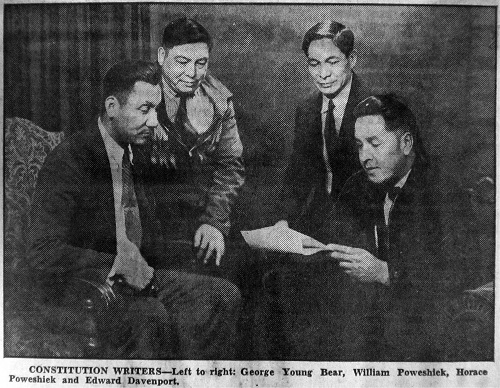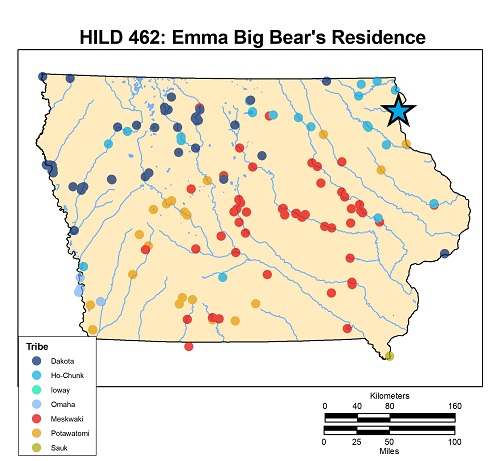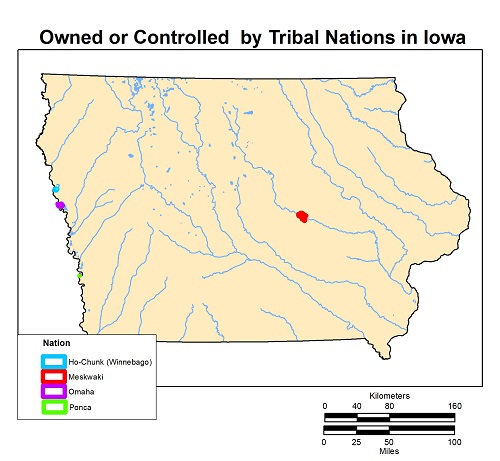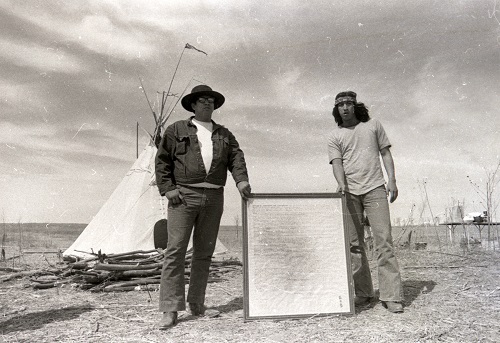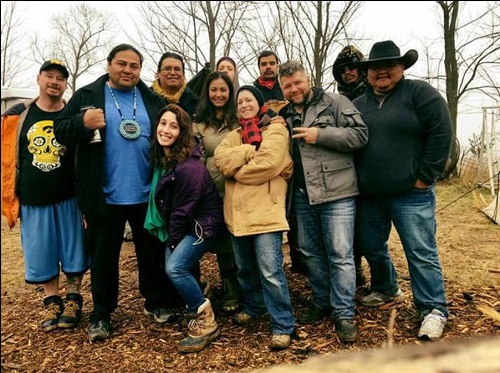1900 - Present
In the early 1900s, Indians were often seen traveling across Iowa. Western tribes visited the Meskwaki Settlement during the annual Pow-Wow and Ho-Chunk traveled regularly between Nebraska and Wisconsin.
The Meskwaki prevailed after a lengthy series of court cases and political wrangling to have the Meskwaki Settlement recognized by the Federal government and to achieve a degree of sovereignty. Missions, forced schooling, and attempts to manipulate Meskwaki leadership were resisted by the Meskwaki, who struggled to balance traditional lifeways with the encroaching Euroamerican world. They gradually became recognized as part of the state’s heritage, first at their annual public Pow-Wows, and later for their bingo hall and casino, for a time the only legal places to gamble in the state. The Meskwaki settlement has grown to include more than 7,000 acres, called Meskwakenuk.
Ho-Chunk lived in northeast Iowa during the twentieth century. Ho-Chunk families bought or rented land in northeast Iowa along the Mississippi, including the renowned Ho-Chunk elder, Emma Big Bear. The Thompson and Red Horn families lived nearby, close to New Albin.
The cultural awakening of the 1960s and 1970s brought in a new phase for the Indians of Iowa. Native protests, many led by Maria Pearson and Don Wanatee, led to Iowa adopting the nation’s first law that protects ancient human remains (the Iowa Burials Protection Act of 1976), and to the University of Iowa’s Office of the State Archaeologist establishing the first statewide Indian Advisory Council for regular consultation with tribes about human remains issues.
The American Indian Movement (AIM) was strong in Iowa; one of the founding AIM chapters was in Des Moines. AIM protested mistreatment of Indians in Iowa, and in 1973 ten AIM members briefly took over the Grimes State Office Building in Des Moines. In the 1970s sustained protests at Blackbird Bend by Native protesters led the Omaha Tribe of Nebraska and Iowa to regain control of more than 4,000 acres at Blackbird Bend near Onawa. The Winnebago Tribe of Nebraska owns land west of Sloan in Woodbury County; and the Ponca and Omaha own parts of Carter Lake.
During and after the 2016–2017 protests against the Dakota Access Pipeline, protestors, many affiliated with regional Indian nations, peacefully lived at the Little Creek Camp near Millersburg and a camp near Sandusky.
